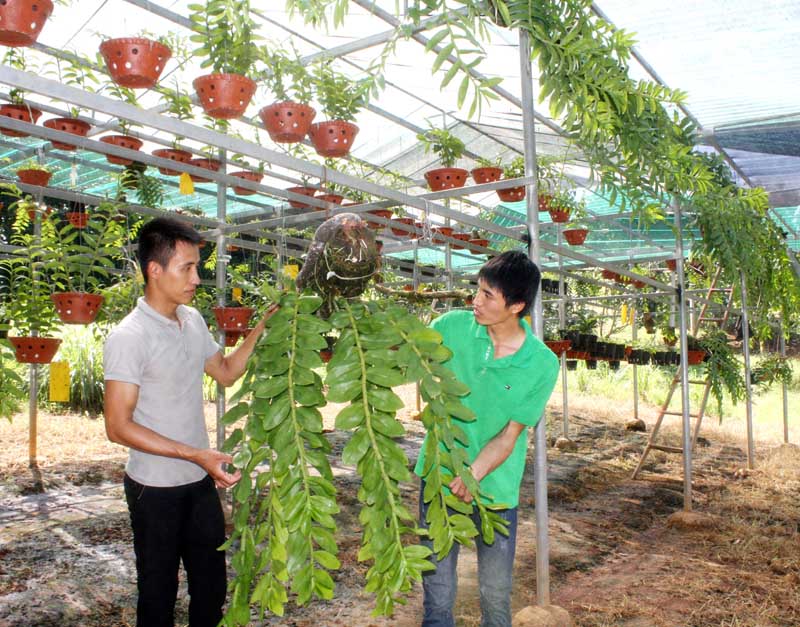



The orchids garden of Nguyen Trung Hieu
(right) and Nguyen Xuan Hoi, Bai Trang 2 hamlet, Dong Lai commune (Tan Lac)
After 5 years of doing the business, the
reputation of the orchids garden of two brothers Hieu - Hoai has been well –
known throughout the region. According to many local people, the gardeners have
sold to the market Phalaenopsis orchids baskets with the price of tens of
million VND, even hundreds of million VND. The owner of the garden shared, the
two brothers previously traded a red-eyed Phalaenopsis orchids basket for 70
million VND. "It is difficult to accurately calculate the amount of money
that the two brothers sell orchids each year because right after we sell one
basket, we are looking to buy more precious one to preserve breeding,"
Hieu shares. Although the two brothers are modest to share the revenue that the
orchids garden bring but from the "humor" widespread of the orchids
collectors and looking at the development of their orchids garden (from 100 m2
up to 600 m2 ), with thousands of green orchid sprouts, forestry orchids has
brought very high economic value for the two brothers of Hieu - Hoi.
"The main income of farmers in the
village comes from cultivation and husbandry, in the last few years, the red
grapefruits have been planted much. Meanwhile, the model of orchids planting
from the two brothers Hieu – Hoi is very new but achieving high economy
efficiency. From this model, many young people in the village have learned and
followed. With the current value, the orchid cultivation model has a lot of
potential, "said Mr. Bui Van Nhi, the Secretary of Bai Trang 2 People’s
Committee said.
Sharing about their upcoming development
plan, Nguyen Xuan Hoi said that the two brothers will not increase the number
of orchid gibbons but focus on breeding the precious orchids of Hoa Binh
province such as red -eye Phalaenopsis orchids to preserve, as well as share
with the orchids collectors. At the same time, they will collect more precious
orchids varieties, which can bring high value in the country.